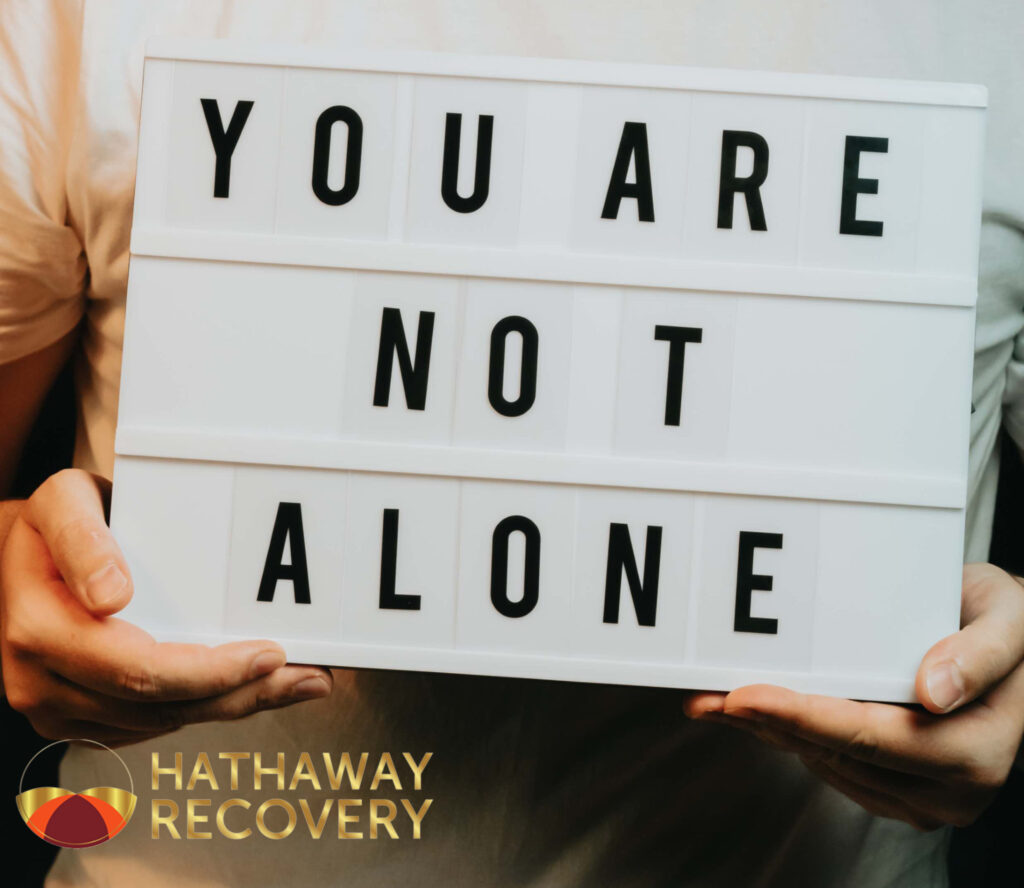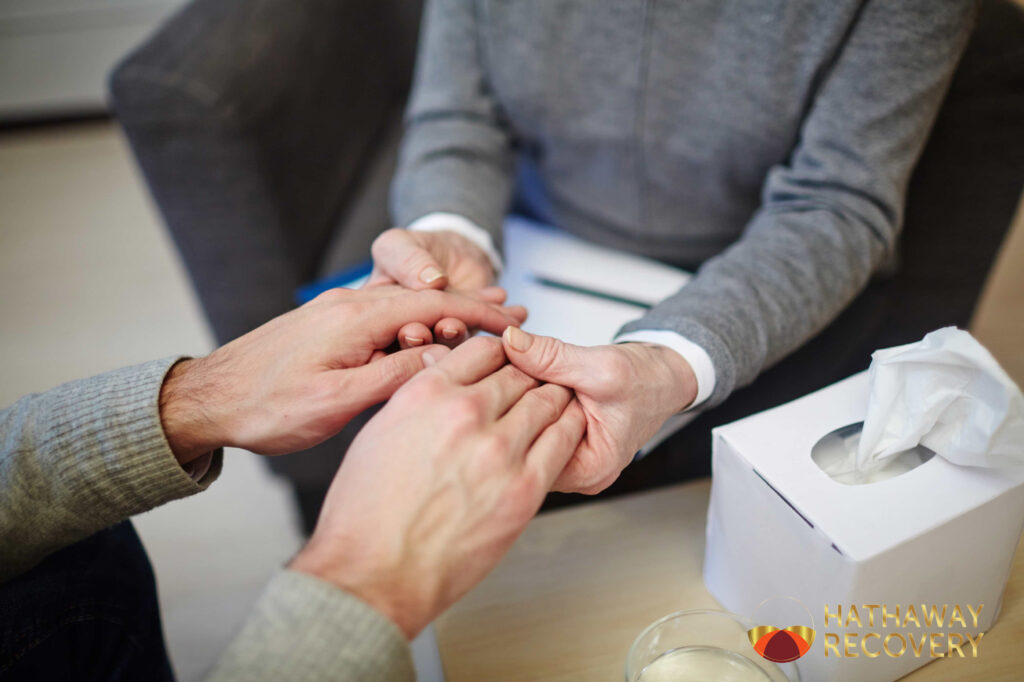Many people considering seeking treatment for substance abuse question themselves: “When is my addiction serious enough?” You could have serious, sometimes even fatal, consequences if you continue to ask this question.

Is my Addiction Too Bad?
It can be challenging to admit that you may have a substance abuse disorder. However, it is essential to stop using substances and to look at the facts to see if you are suffering from an addiction. Recognizing that you have a problem is the first step to recovery. Recovery is not possible unless this realization is made.
This is the most difficult step for most. It often leads to years of struggle until finally hitting “rock bottom.” However, for many who have reached rock bottom, this is what drives them to seek treatment and make positive changes.
According to the 2020 National Survey on Drug Use and Health of SAMHSA, 1.4% of those over 12 who needed treatment for substance abuse disorders received it.
Many people skip treatment, believing they have yet reached rock bottom. Some people don’t think their substance abuse has made their lives more difficult. It is true that if you are concerned that your substance abuse may be a problem, it’s likely that you are right.
This means that you need to address the issue. This holds for all substances. But it’s especially true when substances like Heroin or other Opiates have been involved. These substances can have severe, potentially life-threatening consequences because overdose risk has increased significantly over the last few years.
Understanding Addiction: What Does It Look Like?
These are signs that you may have a substance abuse disorder. SUDs (substance use disorders) can be diagnosed in various severity levels. Health professionals diagnose a SUD by examining the patient’s substance abuse and addiction.
There are 11 criteria used to diagnose a substance abuse disorder. These criteria are often grouped into four categories: risk usage, physical dependence, impaired control, and social problems.
Physical dependence
- Tolerance means you need more substance to get the same effect. For example, to feel the buzz, someone who has a high tolerance to alcohol might need to consume 8-12 beers, while someone with a lower tolerance to alcohol would only need to have 1-2.
- Withdrawal: These are unpleasant symptoms that may result from a dependence on a substance. They can be dangerous and require medical attention. You may feel sick after stopping using the substance for a while.
Risk Usage
- Persisting in using a substance even though it is known to have dangers and problems. This could include continuing to use an Opiate even though you know it is dangerous.
- Repeated use in dangerous situations,, such as driving drunk or using drugs at work.
Social Problems
- Persistent substance abuse even though it causes harm to family relationships, employment, and social obligations. Examples include losing your job, getting into trouble at work, forgetting important dates like birthdays and anniversaries, and even going to work drunk.
- Arguments and altercations are more common, leading to broken or lost relationships. As substance abuse is more common in the family, so are complaints from the children.
- Substance use can lead to a reduction in meaningful relationships and activities. For example, spending less time with loved ones and isolating oneself to substance use.
Impaired Control
- You may use it for longer than you intended.
- You want to reduce your usage or stop entirely but cannot. You may feel like you are unable to stop.
- Significant cravings for use can be intense and hard to resist. As a result, you may feel anxious about quitting and constantly think about using.
- Expending too much time looking for, using, or recovering from a substance.
How many criteria you meet will determine the severity of your addiction. If you meet 2 to 3 criteria above, your doctor might suspect you have a mild substance abuse disorder. To be considered a severe addict, you must meet at least six criteria. Even if you are not diagnosed with severe addiction, it is crucial to seek professional help to lower the chance of your disease progressing to the worst.

Comparing yourself to Others
You can compare yourself to others if you are unsure if your addiction is “really bad.” You could compare yourself to family members, friends, and coworkers who might be in a similar or worse situation with substances.
This can be helpful but also help you justify your behavior and convince yourself that they aren’t so bad.
Are they also using drugs or alcohol?
They may be saying that their substance abuse (and, by extension, anyone else’s) are “not a big deal” and similar statements. These people often have a problem but don’t want to admit it. If they genuinely care, they will support the decision to get sober.
Are you hiding from your family the substance you use?
They may not know your substance abuse has been hidden from them. They may not have heard of it before and are unsure how to believe it. You might say, “I’m your buddy!” How could they not know? “You’re probably reacting too much.”
Use this opportunity to openly and honestly communicate with your loved ones. During the journey to recovery, it is essential to have support, friendship, and family.
Which environment do they live in?
Turning to family and friends for help or using them to understand your concerns is tempting. It is crucial to think about the environment in which they live.
You might not want to ask your friends at the bar or coworkers who “work hard and play harder” for their advice regarding substance abuse.
As a core element of decision-making, it is best to rely on close friends and family members who care about your safety and health. For more information, talking to a trusted healthcare provider like a family doctor or behavioral health professional is a good idea.
Addiction is a progressive disease
A spectrum of addiction can mean that a mild or moderate diagnosis might not be as severe as one with more severe symptoms. Many people find it easy to say, “I could have been worse.” But addiction is a progressive disease that can only be treated if not addressed.
Without long-term intervention, substance use disorders cannot “get better.” Moreover, the consequences of not dealing with the disease are life-threatening.
Addiction can be a chronic condition like diabetes, asthma, hypertension, and cancer. It is normal to seek treatment if you are diagnosed with stage 1 or 2 cancer. There is no need to be in pain to receive treatment. It’s possible to get it now, regardless of how severe. It’s never too late for the help you require.
Hidden your addiction behind a successful career
Many people believe that success is enough. This is often referred to as a high-functioning addict. People who are high-functioning addicts can maintain their professional success while fighting addiction.
It’s like trying to live a secret lifestyle while simultaneously running on a hamster wheel. This situation can lead to a collapse of both family and career, as secrets are revealed, and consequences happen.
A high-functioning addict will eventually become addicted to alcohol and drugs.
Many people have struggled with addiction and substance use disorders for many years. Family arguments and disagreements can lead to divorce or serious consequences.
Others may need to face the problem after a life-altering event such as a DUI or accidental overdose. It’s safer to seek professional help immediately rather than wait for one of those life-altering events to occur.

Rehab offers a chance for recovery
Treatment may be an option if you or someone you care about has a substance abuse disorder. However, to end substance abuse, you must address the psychological and physical issues and the dependence.
The psychological aspects of addiction cannot be changed by quitting abruptly. Addiction recovery requires a change in your thinking, feeling, and behavior. Without the help of a professional in behavioral health, it can be difficult for you to address your psychological addiction.
Many people need to safely detoxify or remove substances from their system under medical supervision to eliminate physical dependence. Because of the risk of withdrawal symptoms, medically assisted detox in Hathaway Recovery can be safer than trying to detox on your own.
If you or someone you care about has an addiction, you can seek professional help. Research shows that rehab can be beneficial in helping people to stay sober.
Hathaway Recovery offers a tailored treatment program incorporating evidence-based treatments like experiential and behavioral therapies. Our holistic healing program can help you grow as a person and make a fresh start in your life.
We are committed to your privacy and comfort. You will feel completely relaxed in our state-of-the-art luxury facilities. The professional and compassionate staff at the Hathaway Recovery Center are always available to assist you.
The center provides private rooms, personalized attention, and treatment plans. Our staff includes the best specialists. Our mission is to Renew and Rebuild Lives.
For any questions, call the Admissions Department at 909-971-3333.
It is entirely confidential.
Don’t miss the chance to make a positive difference in your life.
- Individual counseling
- Group counseling
- Family Drug Education
- Relapse Prevention Therapy
- Counseling for grieving






